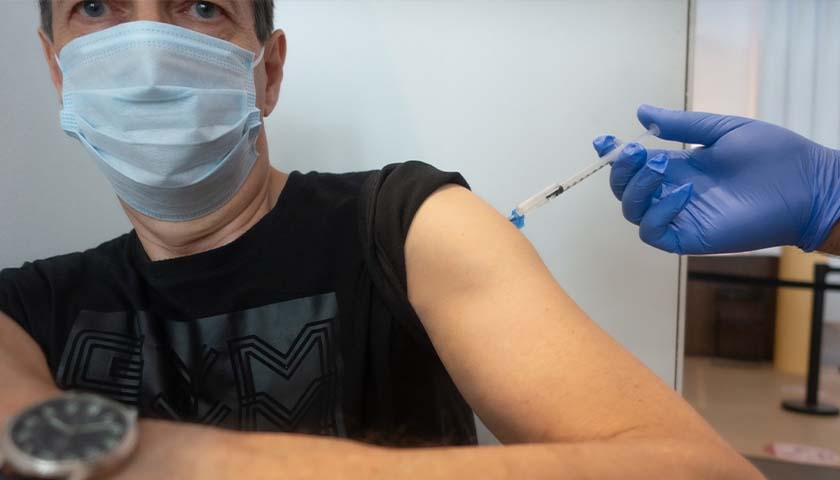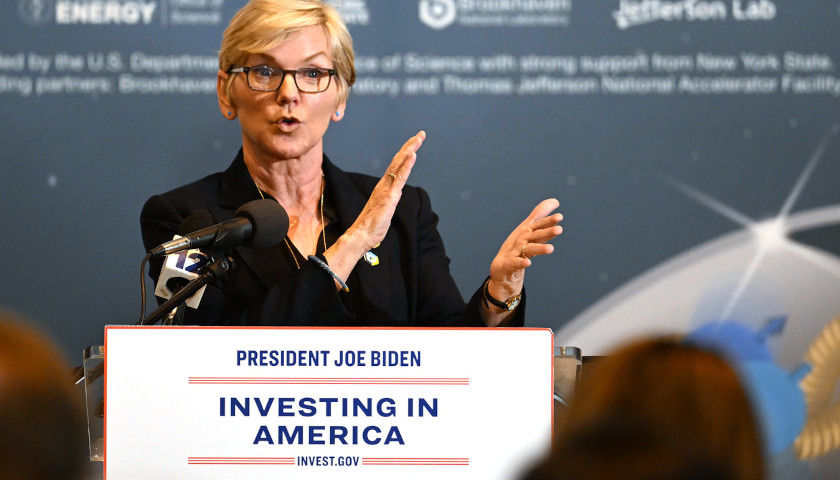by Bethany Blankley
More than a third of U.S. workers who have not been vaccinated for COVID-19 say they will quit their jobs if their employer requires them to take a weekly test or get the shots as a condition of employment, the Kaiser Family Foundation reports.
The data come from the foundation’s COVID-19 Vaccine Monitor, an ongoing research project that tracks the public’s attitudes and experiences with COVID-19 vaccinations. It combines surveys and qualitative research, as well as public opinion on vaccine confidence and acceptance, information needs, messages and other criteria.
“Across the country, more and more business, universities, and state and local governments are instituting COVID-19 vaccination requirements,” the report states. It refers to an executive order issued by President Joe Biden requiring most federal government employees and contractors to be vaccinated, for private employers with 100 or more employees to either require their workers to provide proof of vaccination or regular COVID-19 testing, and California Gov. Gavin Newsom’s vaccine mandate for all students once the vaccine is fully approved by the FDA for their age group next year.
With the increase in vaccine mandates, 25% of workers say their employer has required them to get the COVID-19 vaccine, up 16% since June.
“Notably, adults with a household income of $90,000 or more are more likely than those with incomes below $40,000 to say their employer has required them to get a COVID-19 vaccine (31% vs. 18%),” the report states.
About 58% of the adult U.S. population has received both shots, according to CDC data.
Half of workers – 50% – surveyed say they don’t want their employer to implement a vaccine requirement.
Roughly 37% of unvaccinated workers say they would leave their job if their employer required them to get a vaccine or get tested weekly, the report found.
Roughly 70% say they would leave their job if weekly testing is rescinded.
Roughly 60% say they would ask for an exemption if mandated to take the experimental drugs.
So far, 1% of all U.S. adults have already left their jobs due to their employer requiring a vaccine as a condition of employment, KFF found.
Earlier this month, the U.S. Department of Labor submitted the language for an emergency temporary standard to the Office of Management and Budget for review. The rule change would then go through a several-month-long regulatory process.
The KFF Monitor also found that 27% of parents said they would vaccinate their 5 to 11-year-old children “right away” once a COVID vaccine is authorized for them. One third said they would “wait and see” how the vaccine worked before having their 5 to 11-year-olds subjected to the drug. Thirty percent said they would “definitely not” have their child in this age group receive the jabs.
Children in this age group have a 99.99% of surviving the coronavirus.
The Monitor found that 46% of parents of teens say their child has received at least one dose of the COVID-19 vaccine. Four percent of parents said they would want their 12 to 17-year-olds vaccinated right away; 11% said they want to “wait and see;” 31% said they definitely will not have their 12 to 17-year-olds receive the shots.
The Monitor also found that over a period of months, large gaps in self-reported vaccination rates remain across demographics.
Politically, 90% of Democrats say they have gotten at least one dose compared to 69% of independents and 61% of Republicans, the Monitor found.
The majority of college graduates, 83%, got the shots, compared to 67% of those without a college degree.
Of those living in urban and suburban areas, 75% and 73%, respectively, are vaccinated compared to 58% of rural adults.
According to racial demographics, those who received at least one dose – Black adults (73%), White adults (72%) and Hispanic adults (70%) – were nearly even.
– – –
Bethany Blankley is a contributor to The Center Square.
Photo “People Being Vaccinated Against COVID-19” by Frankie Fouganthin. CC BY-SA 4.0.








